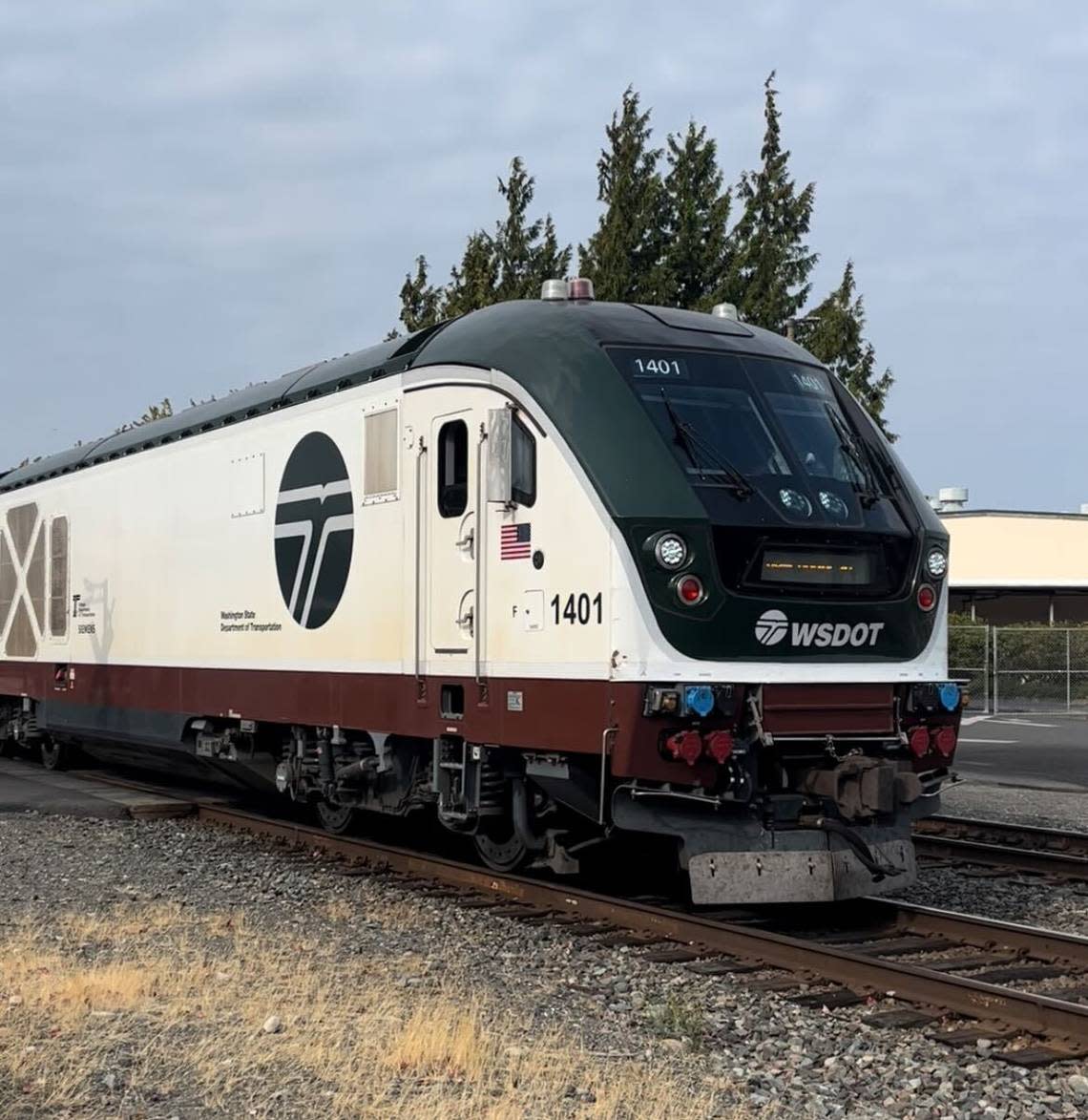10 days before it resumes, Amtrak Cascades service through Bellingham could be derailed

Ten days before it was scheduled to resume, Amtrak’s Cascade passenger train service through Bellingham could be derailed due to ongoing freight labor contract negotiations.
“We’re keeping a close eye on the ongoing freight rail labor contract negotiations and working with our partners at the Oregon Department of Transportation and Amtrak about what this means for our Amtrak Cascades service,” Communications Manager Janet Matkin wrote in a Washington State Department of Transportation blog posted Wednesday, Sept. 14.
Contract negotiations, which do not involve Amtrak or its workforce, could still impact passenger train service, according to the blog, which stated that Amtrak has begun to adjust its service in preparation for a possible freight rail service interruption beginning Friday, Sept. 16.
Railroad tracks in Washington state and Oregon are primarily owned by BNSF Railway and Union Pacific, according to the blog, and it is those companies that control rail movements in the region. A potential strike of BNSF and Union Pacific workers would therefore impact the Amtrak Cascades trains, which cannot operate without BNSF and Union Pacific dispatchers.
“As a precautionary measure, Amtrak has secured buses for Thursday, Sept. 15, that will transport Amtrak Cascades passengers if necessary, ensuring train passengers are not stranded mid-trip,” Matkin wrote. “However, if a strike occurs, it will result in complete service disruptions starting on Friday, Sept. 16, and there are no buses available this weekend to provide alternative transportation options.”
Amtrak Cascades trains were not scheduled to resume through Bellingham until Sept. 26, after the route between Seattle and Vancouver, B.C., was suspended in March 2020 due to the COVID-19 pandemic. But that resumption is now in doubt.
The WSDOT blog reported that ticketed customers will be notified of the potential shutdown, and Amtrak is offering to allow them to change reservation dates and wave any ticket price differences for departures through Oct. 31 or provide a full refund.
Amtrak also suspended its two long-distance routes out of Portland and Seattle — the Empire Builder to Chicago and the Coast Starlight to Los Angeles — according to the blog.
“We know disruptions and uncertainty are frustrating and we’re working to keep passengers informed of any changes and thank you for your patience and understanding,” Matkin wrote. “Amtrak Cascades trains will resume running as soon as the labor negotiations are resolved.”
Strike deadline looms
The Associated Press reported that freight railroads and their unions are facing increasing pressure from business groups and the White House to settle their contract dispute before Friday’s looming strike deadline.
The pressure stems from concerns that halting railroad deliveries of raw materials and finished products that so many companies rely on would be, in the words of the head of the U.S. Chamber of Commerce, an “economic disaster.”
Whatcom County’s garbage is hauled by train to landfills in Eastern Washington and Oregon, but a potential rail strike won’t affect local trash pickups, said Ted Carlson, general manager of Sanitary Service Co. Inc.
“Most of the garbage in Whatcom County goes by rail to the landfills for the majority of the transport,” Carlson told The Bellingham Herald.
“The disposal companies do have contingencies in place to haul garbage from the two transfer stations via truck to the landfills if necessary. A potential rail worker strike should not impact SSC’s collection,” he said in an email.
The AP reported that a Labor Department spokesperson said Monday that it’s crucial that the parties remain at the negotiating table and come to an agreement because “a shutdown of our freight rail system is an unacceptable outcome for our economy and the American people.”
Cost to economy
The Association of American Railroads trade group put out a report last week estimating that shutting down the railroads would cost the economy $2 billion a day, according to the AP.
The coalition negotiating on behalf of the nation’s biggest freight railroads – including Union Pacific, CSX, Norfolk Southern, BNSF and Kansas City Southern – has announced eight of the 13 tentative agreements needed to avert a strike by some 115,000 rail workers.
The deals that have been announced so far have closely followed the Presidential Emergency Board’s recommendations that called for 24% raises over five years, $5,000 in bonuses and one additional paid leave day a year. But the two biggest unions representing conductors and engineers have been holding out because they want the railroads to go beyond those recommendations and address some of their concerns about strict attendance policies and working conditions.
The railroads have said they would begin curtailing shipments of hazardous materials and some other goods Monday in advance of a possible work stoppage at the end of the week. That would ensure that containers of those dangerous goods aren’t left stranded along the tracks.
The Associated Press and Bellingham Herald reporter Robert Mittendorf contributed to this story.
